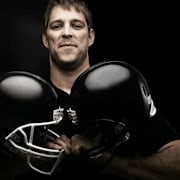The Cat-and-Mouse Game of Performance-Enhancing Drugs in Sports

The world of sports has been tarred from the battle between athletes seeking an edge through performance-enhancing drugs (PEDs) and the governing bodies looking to catch them. This cat-and-mouse game is a relentless race: athletes and their teams constantly devise new ways to outsmart the ever-evolving detection methods used by govern bodies. As the agencies develop more sophisticated ways to uncover banned substances, athletes and their support systems fight to stay a step ahead with more and more innovative ways.
A key element of this struggle is the evolving nature of performance-enhancing drugs and the time lag between their introduction and the ability of doping agencies to detect them. This delay provides athletes with a window of opportunity to use newly developed or chemically modified substances that evade current detection methods. To fight this, anti-doping agencies have adopted the practice of storing samples for several years, often up to a decade, allowing them to be re-tested as more advanced techniques are developed. This strategy ensures that substances undetectable today may still be identified in the future, holding athletes accountable long after the fact.
A famous example is the BALCO scandal. Victor Conte, founder of the Bay Area Laboratory Co-operative (BALCO), collaborated with a chemist to tweak a drug from East Germany's doping archives. By making subtle modifications to the chemical structure, they produced a PED that was undetectable by standard tests but maintained its performance-enhancing effects. The activities of BALCO might have gone unnoticed if not for a whistleblower who sent a syringe containing the drug, later dubbed "the clear," to the United States Anti-Doping Agency (USADA).
This scandal highlights the lengths to which some individuals will go to gain an advantage and the difficulty faced by anti-doping authorities in keeping up. As soon as one substance is banned, a new variation emerges.
